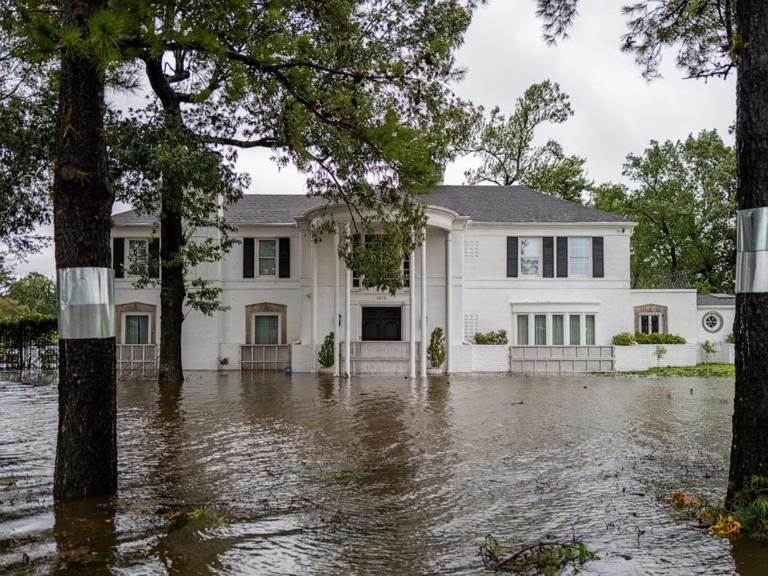Hurricane Beryl, which made landfall in Texas as a Category 1 hurricane on Monday morning, has left a trail of destruction in its wake.
The storm has resulted in the deaths of at least six people and has caused widespread power outages, affecting over 2.7 million residents across the state.
Texas officials confirmed on Monday evening that the death toll from Hurricane Beryl has risen to six. Three of the fatalities occurred in Montgomery County due to falling trees, according to Chief of Staff for Montgomery County Judge Mark Keough.
Among the deceased were a man on a tractor and a couple in a wooded area, all struck by falling trees. Earlier reports included two deaths from falling trees and one from drowning.
The powerful winds and torrential rain have caused significant damage to Texas’ power infrastructure. Texas Lt. Gov. Dan Patrick reported that 2.7 million people are without power, with ten transmission lines down. Efforts are underway to restore power, with priority given to hospitals, nursing homes, and residences dependent on medical devices.
Houston has been particularly hard-hit, with 47 high-water rescues conducted across Harris County. Houston Mayor John Whitmire confirmed a third fatality in the city: a civilian employee of the Houston Police Department who drowned after driving into flood conditions.
Houston and its surrounding areas have experienced severe flooding, with rainfall totals ranging from 5 to 9 inches. Wind gusts reached up to 84 mph in Houston and 94 mph in Freeport, Texas. Beryl has also triggered tornadoes in east Texas, with a tornado watch in effect through Monday night for Texas, Louisiana, and Arkansas.
Local authorities have urged residents to stay indoors and avoid driving to prevent further casualties. Sugar Land, a city near Houston, reported significant damage but had prepared extensively for the storm. Mayor Joe Zimmerman praised the efforts of emergency operations teams who worked in shifts to manage the crisis.
As of Monday evening, Beryl was downgraded to a tropical depression, with sustained winds of 35 mph. The storm is moving northeast at 16 mph and is expected to weaken further as it progresses through Arkansas and beyond.
By Tuesday, Beryl’s remnants will bring heavy rain to parts of Indiana, Detroit, Vermont, Washington, D.C., Philadelphia, and New York City, with potential flash flooding.
Hurricane Beryl’s impact on Texas has been devastating, with a significant loss of life and widespread power outages. As recovery efforts continue, officials are focused on restoring power and ensuring the safety of residents.
The storm’s remnants will continue to affect other parts of the United States in the coming days. For more updates on Hurricane Beryl and its aftermath, stay tuned to local news outlets and emergency services announcements.



